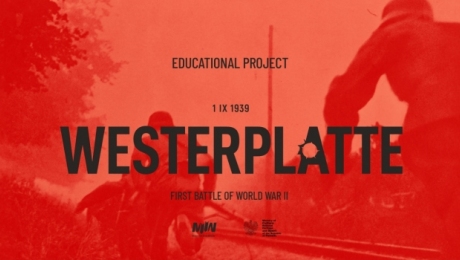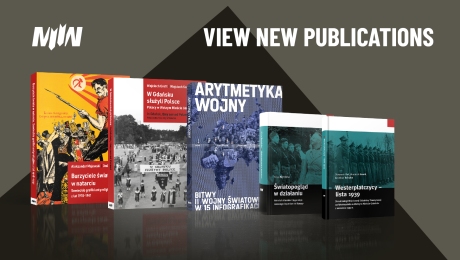Fallen Defenders Identified
In the autumn of 2019, a team of archaeologists from the Museum of the Second World War (MSWW) discovered the remains of nine defenders of Westerplatte. Through the collaboration between the Museum of the Second World War in Gdańsk, the Pomeranian Medical University in Szczecin, and the Regional Commission for the Prosecution of Crimes against the Polish Nation of the Institute of National Remembrance in Gdańsk, seven fallen defenders of Westerplatte have been identified to date.
We encourage you to familiarize yourself with the following information and watch video materials that highlight their profiles:
SENIOR LEGIONARY ZYGMUNT ZIĘBA (1914 – 1939)
He arrived at Westerplatte as a Senior Legionairy in September 1938 from the 5th Regiment of the Legionary Infantry in Vilnius. The beginning of the combat actions found him in the area of the "Ferry" post, which constituted the eastern section of the defense. There, he was wounded in the head. He was transferred to a dressing station located in the barracks. During the bombing of the depot on September 2nd, 1939, he was wounded again, this time in the abdomen. The wound proved fatal. For his utmost sacrifice and the price he paid, Senior Legionary Zygmunt Zięba was posthumously awarded the Virtuti Militari Order, 5th class, in 1945.
SENIOR LEGIONARY IGNACY ZATORSKI (1915 – 1939)
Ignacy Zatorski, born on July 25, 1915, in the village of Baranów (now Suchedniów, living in Bugaj, gmina Suchedniów, Świętokrzyskthie Voivodeship). Son of Andrzej and Marianna (née Mendakiewicz). He served in the 4th Legionary Infantry Regiment in Kielce. He arrived at Westerplatte on March 30, 1939, as a Senior Legionary and a machine gunner. From August 17th, 1939, he was assigned to the 1st squad of the 1st platoon, tasked with defending the eastern posts of the Military Transit Depot at Westerplatte. On August 31st, 1939, by order of the Commander of the Guard Unit, Captain Franciszek Dąbrowski, he was assigned to guard post No. 5. He participated in repelling the first German assault on the Depot as part of the defense of Corporal E. Szamlewski's Wall. Later, he fought in the vicinity of guard post No. 5. In the afternoon of September 2nd, 1939, Zatorski was inside guard post No. 5, where he perished during an air raid by the Luftwaffe.
He was posthumously awarded the Virtuti Militari Cross, 5th class (in 1945), for the defense of Westerplatte.
CORPORAL BRONISŁAW PERUCKI (1915 – 1939)
He arrived at Westerplatte with the last reinforcements on August 13th, 1939. Assigned to the crew of guard post No. 5, he perished inside it during an air raid on September 2nd, 1939. He was buried near the officer's villa in a mass grave after the end of the battles.
SENIOR RIFLEMAN WŁADYSŁAW OKRASA [OKRASZEWSKI] (1916 – 1939)
On the premises of the depot from July 30th, 1939, he was responsible for the provisioning and sustenance of the crew. He fell on September 2nd, 1939, during the air raid on Westerplatte, inside Guard Post No. 5. He was buried near the officer's villa in a mass grave after the fighting ended.
LEGIONARY JÓZEF KITA (1915 – 1939)
He reported to Westerplatte with the spring shift on March 17th, 1939. He was chosen as an adjutant to the Commander of the depot. Assigned to the crew of guard post No. 5, he perished on September 2nd during the bombardment of Westerplatte. He was buried near the officer's villa in a mass grave after the fighting ended.
CORPORAL JAN GĘBURA (1915 – 1939)
He reported to Westerplatte with the spring shift on March 17th, 1939. A soldier in the crew of guard post No. 5, he perished on September 2nd during the bombardment of Westerplatte. He was buried near the officer's villa in a mass grave after the fighting ended.
SERGEANT ADOLF PETZELT (1906–1939)
At Westerplatte from September 20th, 1938, he served as the Commander of Guard Post No. 5. He perished on September 2nd, 1939, during the bombardment of Westerplatte inside guard post No. 5. He was buried near the officer's villa after the fighting ended.











